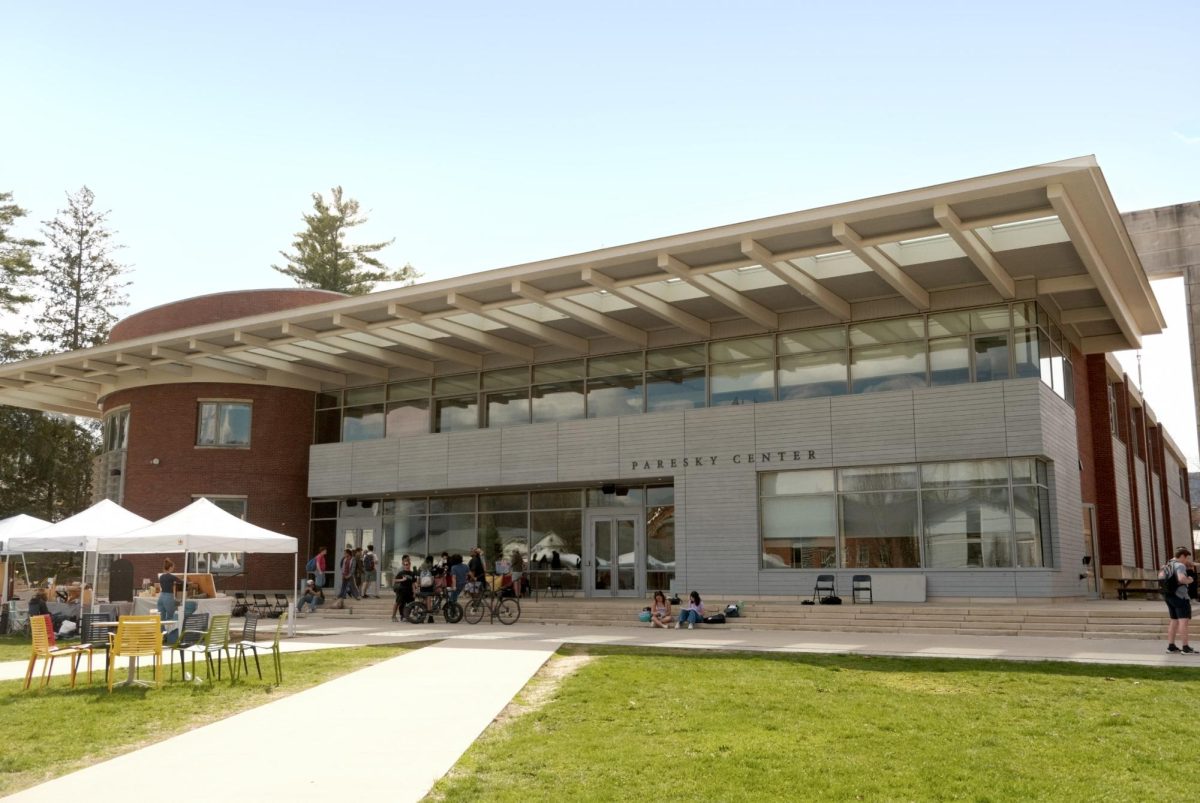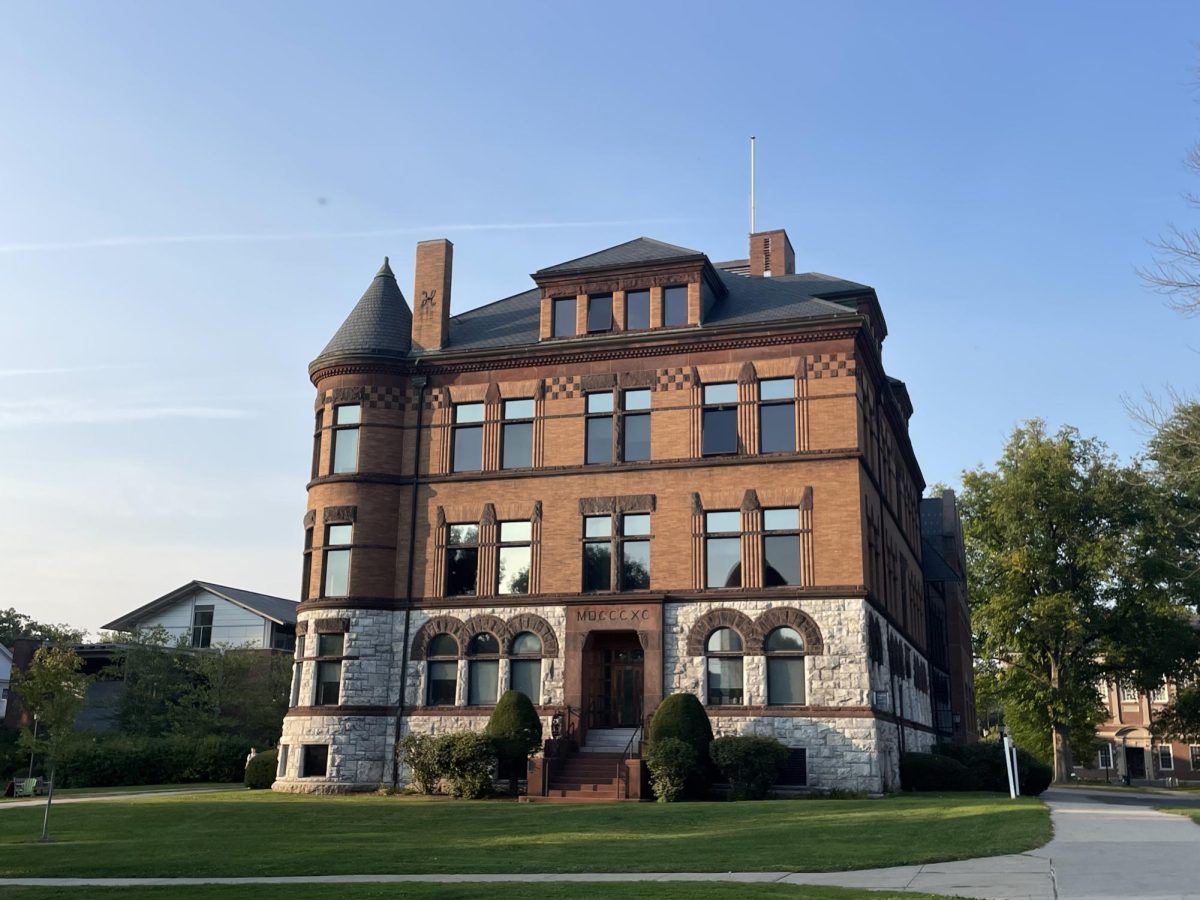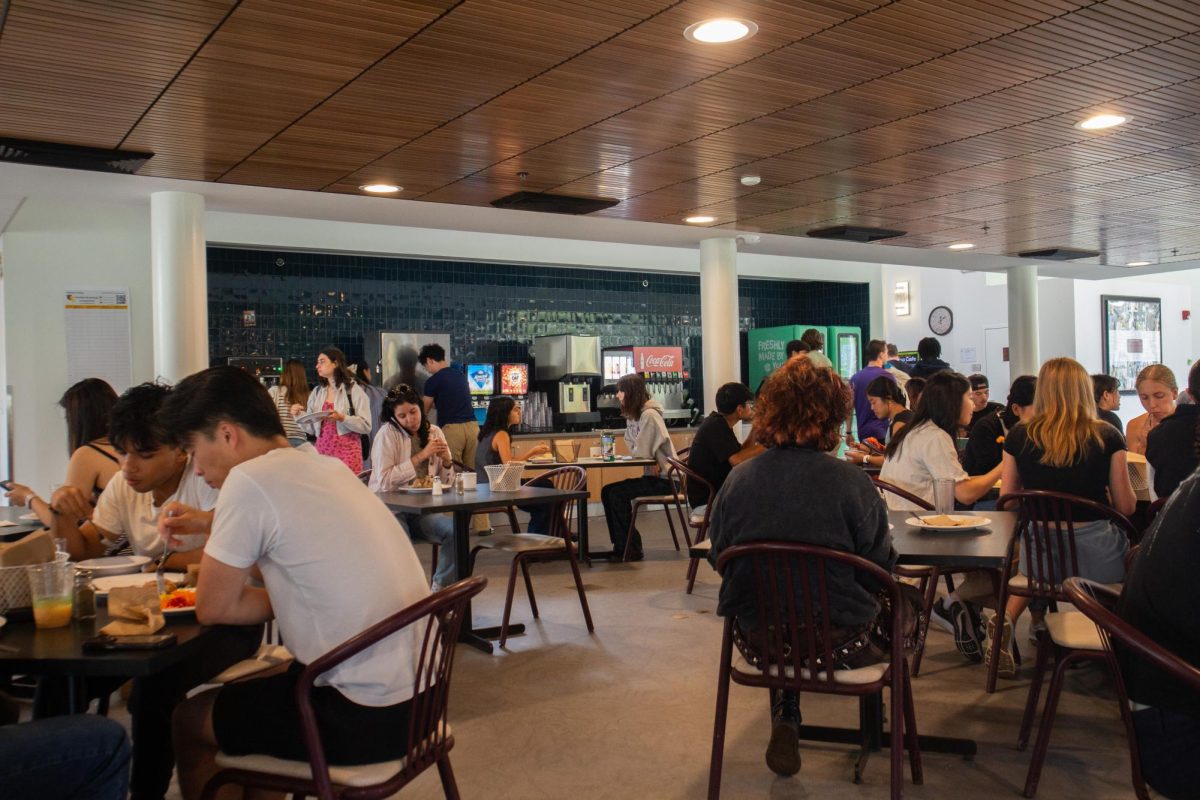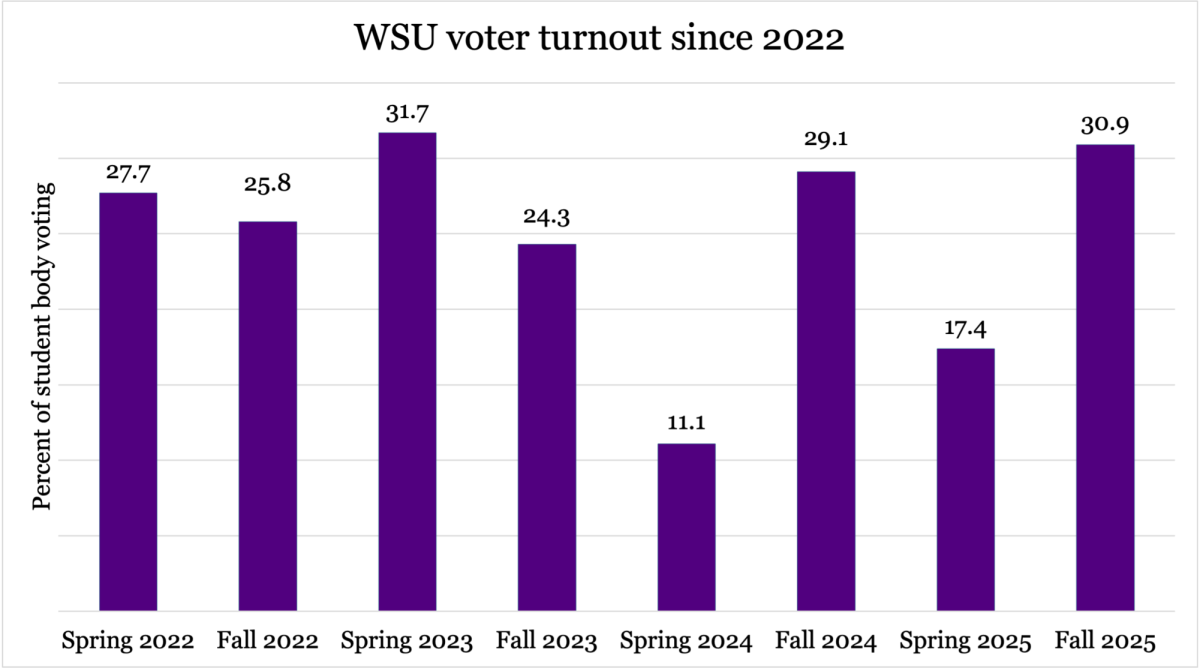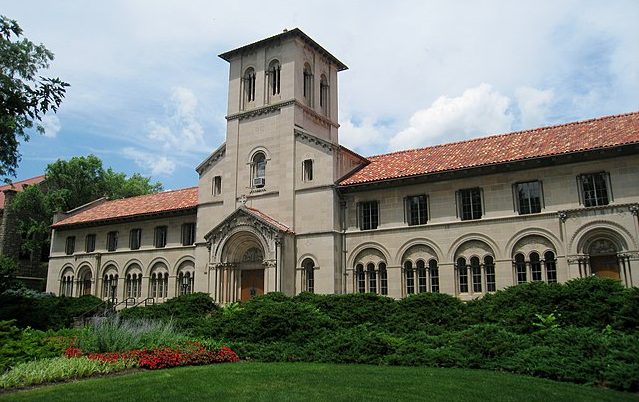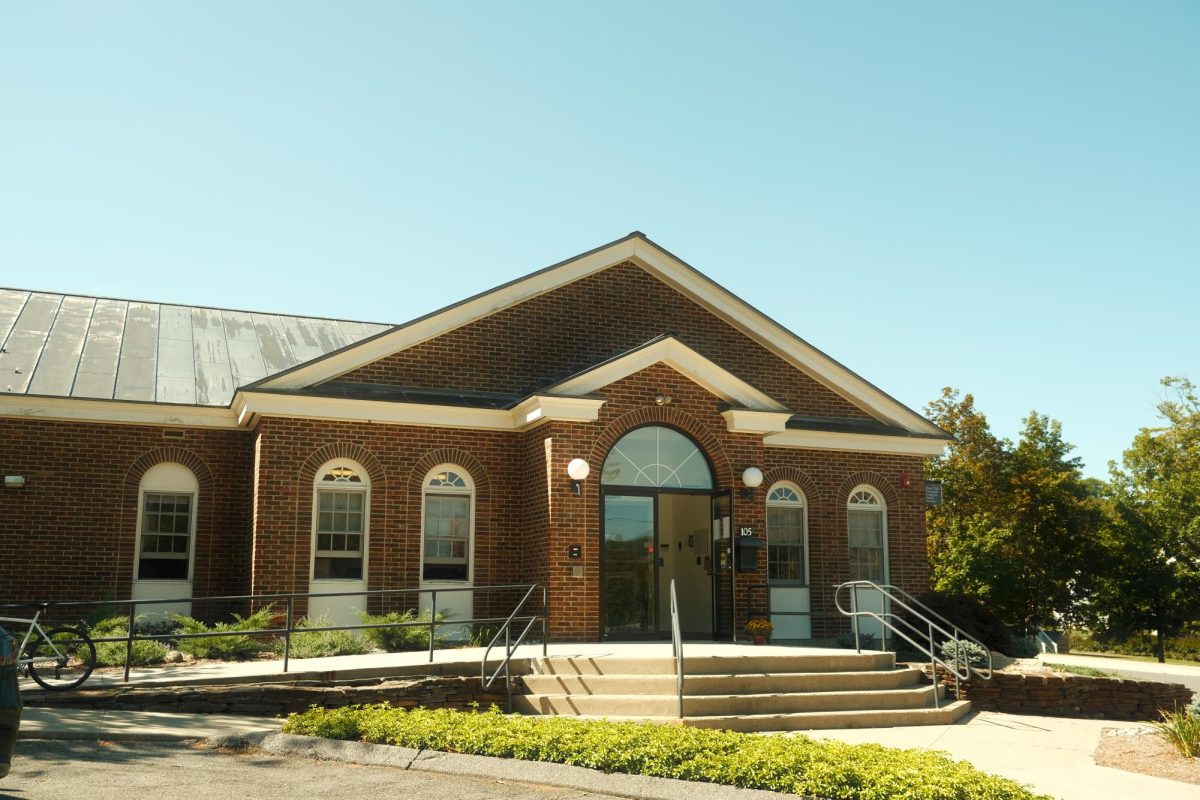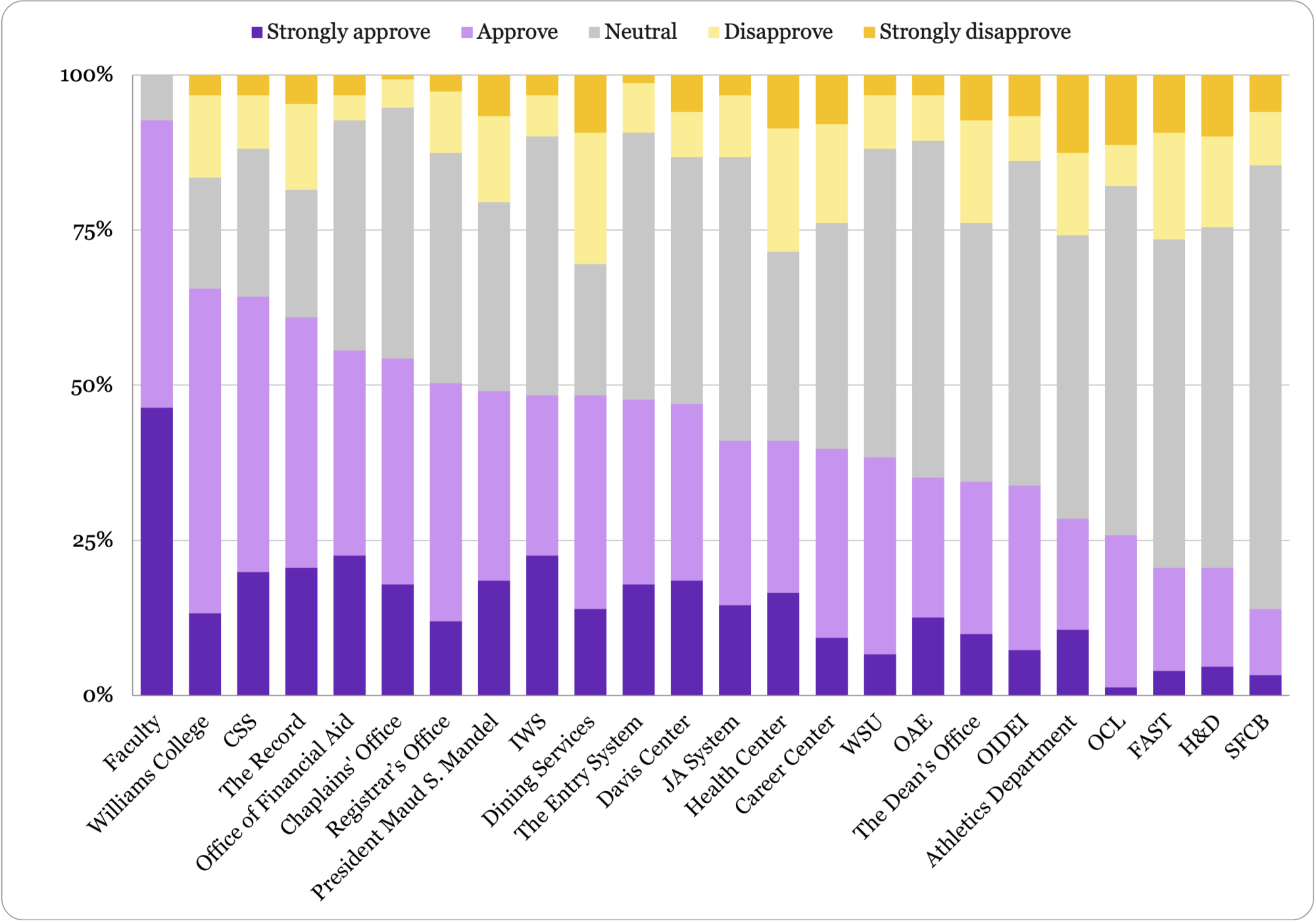
The Record sent its biannual approval ratings survey of 500 students last week, with 125 randomly selected from each class year. Respondents indicated their approval, disapproval, or neutrality towards 24 campus institutions, including dining services, the faculty, and the Record.
Of the survey’s 151 respondents — a response rate of approximately 30 percent — 25 percent were first-years, 30 percent were sophomores, 20 percent were juniors, and 25 percent were seniors. The class years of off-cycle respondents were rounded down.
The faculty had the highest approval of any group on the survey, as it has since at least 2018, with 93 percent approval. No respondents reported disapproval of the Faculty. This result is tied with spring 2020 for the highest approval of faculty since 2018.
Students self-identifying as white made up 60 percent of respondents, a higher proportion than the 46 percent of enrolled students reported in the College’s 2024-2025 Common Data Set (CDS). Sixteen percent of respondents self-identified as Asian or Asian American, four percentage points higher than reported in the CDS. Eight percent self-identified as African American or Black, compared to six percent of enrolled students, according to the CDS. Students self-identifying as Middle Eastern or North African, Native American or Alaska Native, or another racial identity made up 4 percent of the total. Eleven percent of students self-identified with two or more races.
Students receiving financial aid comprised 54 percent of the sample, aligning closely with the 53 percent reported in the CDS. Thirteen percent of respondents were international students, four percentage points higher than the 9 percent enrolled at the College this year.
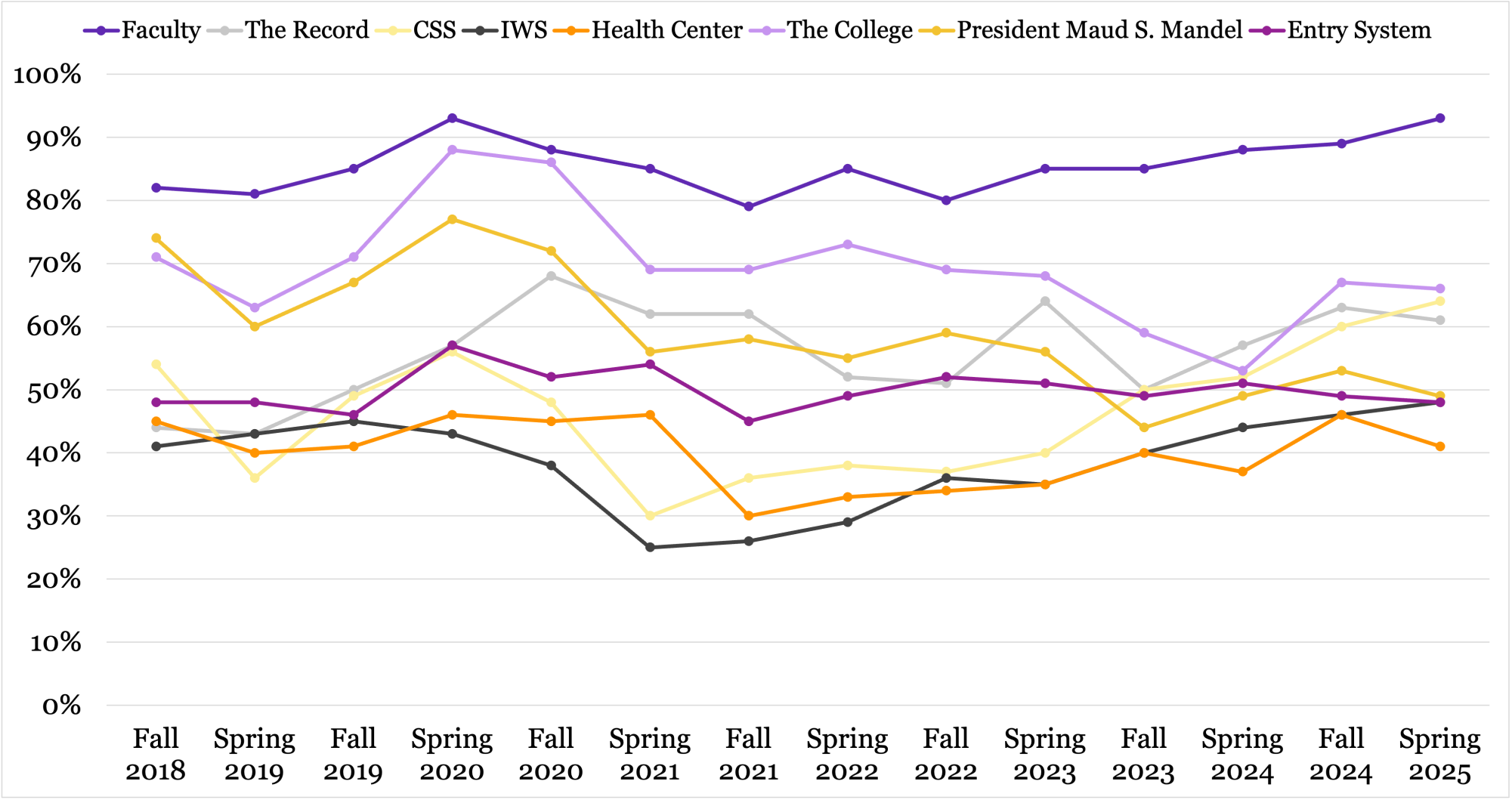
The College received an overall approval rating of 66 percent, down one point from the fall. Fourty-nine percent of respondents approved of President Maud S. Mandel, a decrease from 53 percent in the fall.
Facilitators for Allocating Student Taxes (FAST), the Honor and Discipline Committee, and the Student Faculty Committee Board (SFCB), formerly the Advisory Board for Lobbying and Elections, had the lowest overall approval ratings, at 20 percent, 20 percent, and 14 percent, respectively. Dining Services (30 percent), the Health Center (28 percent), and FAST (26 percent) had the highest rates of disapproval.
Williams Student Union (WSU)’s approval rating increased to 38 percent, a 20 point increase from the fall. WSU recently announced a slate of new initiatives, including the proposed addition of water fountains to every dormitory and a dining menu suggestion system.
The Chaplain’s Office recorded the largest one-semester increase in its approval rating, which increased from 41 percent to 54 percent.
Sixty-four percent of respondents said they approved of Campus Safety Services (CSS), up four points from the fall. CSS has responded to several high-profile incidents this semester, including a rumor of federal immigration agents on campus, and the discovery of a hidden camera in a bathroom in Upper Lasell Fitness Center.
Amid uncertainty in the landscape of higher education, 58 percent of respondents indicated approval of the College’s response to the Trump administration’s higher education policies. Eleven percent disapproved, with 31 percent indicating neutrality.
Only 18 percent of respondents indicated that the College offered sufficient support for students of color this semester, only a one percentage point decrease from the fall, despite several racist incidents this spring and ongoing threats to international students from the Trump administration. The Davis Center’s approval rating was unchanged from the fall, at 47 percent.
Student Financial Services received an approval rating of 56 percent, also nearly identical to its approval in the fall. In addition, 49 percent of respondents indicated that the College provided sufficient support for students on financial aid this semester; ten percent disagreed.
A majority of respondents indicated neutrality towards the changes to the Honor Code proposed by the Ad Hoc Committee on Academic Integrity, which proposed allowing faculty members of the Honor and Discipline committee to vote on cases, decreasing the committee’s size, and allowing some cases to bypass hearings. Almost 27 percent of students approved of the proposed changes while less than seven percent reported disapproval.
The Honor and Discipline committee’s approval rating currently sits at 21 percent, down 7 points from the fall, with 55 percent of students indicating neutrality.
Due to rounding, not all percentages will add to 100 percent.
The Faculty: 93% approve, 7% neutral, 0% disapprove
Williams College: 66% approve, 18% neutral, 17% disapprove
Campus Safety Services (CSS): 64% approve, 24% neutral, 12% disapprove
The Williams Record: 61% approve, 21% neutral, 19% disapprove
The Office of Financial Aid (Student Financial Services): 56% approve, 37% neutral, 7% disapprove
Chaplains’ Office: 54% approve, 40% neutral, 5% disapprove
The Registrar’s Office: 50% approve, 37% neutral, 13% disapprove
President Maud S. Mandel: 49% approve, 30% neutral, 21% disapprove
Integrative Wellbeing Services (IWS): 48% approve, 42% neutral, 10% disapprove
Dining Services: 48% approve, 21% neutral, 30% disapprove
The Entry System: 48% approve, 43% neutral, 9% disapprove
Davis Center: 47% approve, 40% neutral, 13% disapprove
The JA System: 41% approve, 46% neutral, 13% disapprove
The Health Center: 41% approve, 30% neutral, 28% disapprove
The Career Center: 40% approve, 36% neutral, 24% disapprove
WSU: 38% approve, 50% neutral, 12% disapprove
The Office of Accessible Education: 35% approve, 54% neutral, 11% disapprove
The Dean’s Office: 34% approve, 42% neutral, 24% disapprove
The Office of Institutional Diversity, Equity, and Inclusion (OIDEI): 34% approve, 52% neutral, 14% disapprove
The Athletics Department: 28% approve, 46% neutral, 26% disapprove
The Office of Campus Life (OCL): 26% approve, 56% neutral, 18% disapprove
FAST: 21% approve, 53% neutral, 26% disapprove
Honor & Discipline Committee: 21% approve, 55% neutral, 25% disapprove
SFCB: 14% approve, 72% neutral, 15% disapprove









